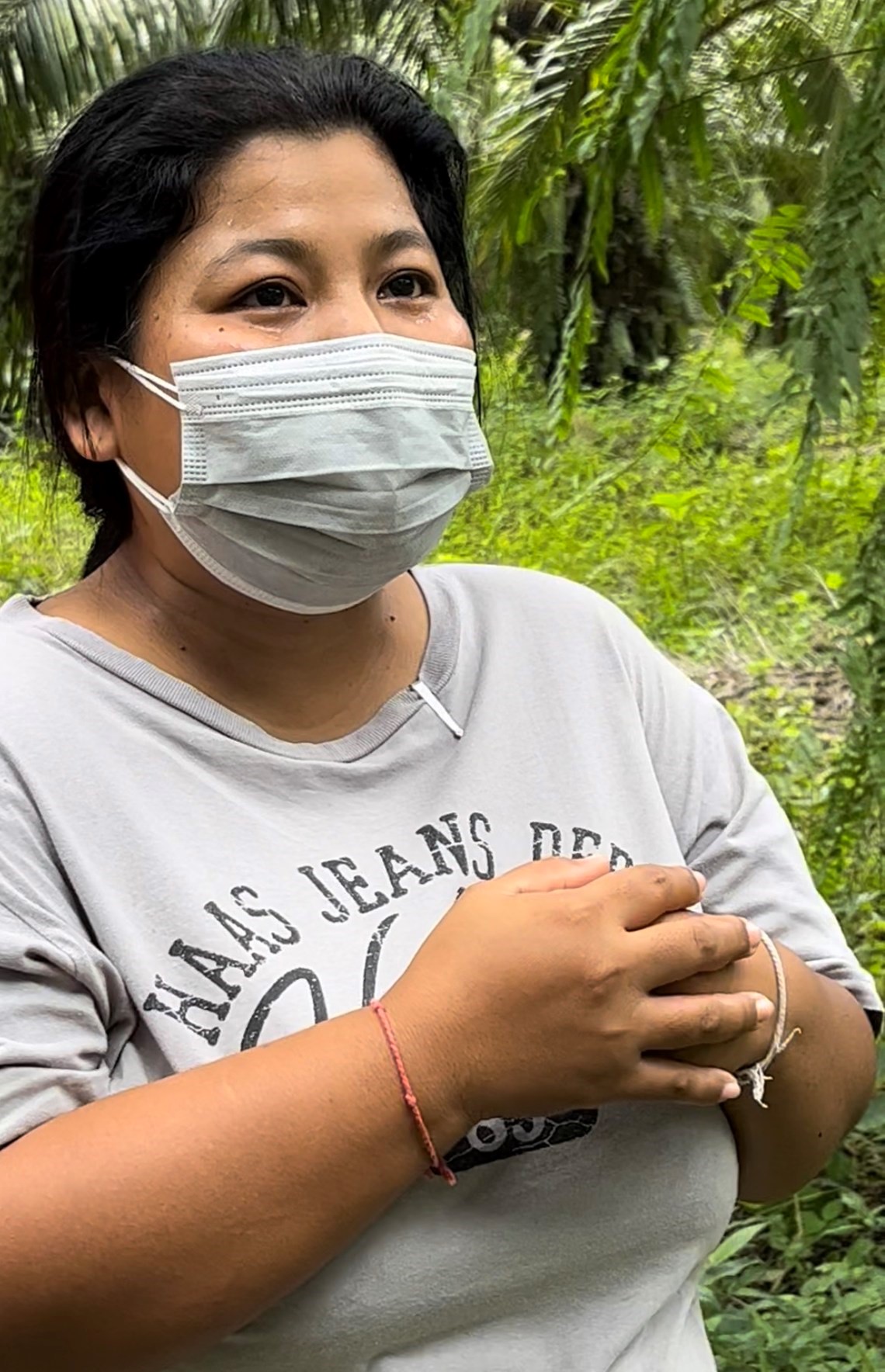
It is undeniable that discussions over women’s roles have picked up steam in recent years. The Sustainable and Climate-Friendly Palm Oil Production and Procurement in Thailand (SCPOPP) project is a part of a larger initiative to develop methods for producing palm oil without negatively impacting the environment. It also includes a wide range of activities in which farm women take part, whether as professional trainers or volunteers participating in a committee on group management or offering suggestions to enhance the project’s activity.
The initiative regularly sees 40 percent of female farmers engaging in the activities, which is quite a high figure for oil palm growers. The activities range from field visits to events and chats with various groups of farmers to encourage them to take part in the action. Their participation has inspired and informed the project of the primary concepts that female oil palm smallholders have contributed to the development of sustainable palm oil.
“Brave” – uncompromising like a southern farmer who must adapt daily

“I know that running an oil palm plantation as I used to is sufficient to make a living. Sustainability necessitates a significant amount of change, particularly greater attention, and cannot be accomplished alone. We need to gather a small group of farmers and collaborate as a group. We must have the fortitude to abandon the traditional methods of doing things. Even if, you are concerned about, whether it would be beneficial and whether you can earn more money than before, there are no options. I never hesitated to give my entire cooperation. If there is an issue, it will be resolved gradually. There is a solution for everything.” says Renu Phusuwan, a farmer from the Thai Indo Lam Thap community entrepreneurship organisation, RSPO.
“Dedication” – when obligations go beyond farming

The initiative has frequently observed that the farmer submitting an application to join the project uses the male pronoun, but female farmers would join the training activities and were taught in their place. Conversations with them reveal that oil palm plantations are typically run by families. The husband works a full-time job outside the house, such as in the government. The stay-at-home wife has more time to participate in the activities. In order that their families can live well, eat well, sleep well, and live happily, female farmers must shoulder more obligations than their spouses, kids, or mothers. However, if it was not for the commitment to upholding the responsible actions to the best of abilities, the management of oil palm farms would never be sustainable.

The mix of “profit” and “pleasure” is more nuanced and effective.
“Para rubber and oil palm were my sole first plantings. But in order to educate oneself and breed cows thus increasing the production of compost and other items, hens and ducks that lay eggs may be sold separately.Today marks the beginning of making palm oil in a sustainable manner. Consider these suggestions as you move forward so that you can help us achieve our goals. It’s entertaining to cultivate oil palm grove throughout the years with the hopes of making it self-sustaining. Get money by buying and selling eggs. Then it grew all by itself.” One of the farmers in the Khao Tok Sub-District, Ban Kiansa in Suratthani province, who produces high-quality palm oil is Sureeporn

“I like the i-Palm app simply because it’s useful. It is really useful in overseeing our oil palm plantations. I encourage all team members to use i-Palm. Training sessions are provided so that they can get familiarise themselves with the mobile app. Thanks to i-Palm, we can keep track of our earnings, records of how the plant develops to identify what’s missing and what needs to be added. At first, many refuse to use it. I keep insisting them to use the mobile app and monitor them regularly. It is evident that our team has a better data management. All evidence is consolidated here and easy to follow.”
“Be Open-Minded”
For Sudarat Nurod, a membe of Sri Charoen Community Enterprise Group Green Palm Oil in Krabi province, all round knowledge is crucial for better oil palm management.

Sustainably managing the oil palm plantation requires commitment, lifelong education and improvement. All involved in the value chain should have a complete understanding of all aspects, and apply what has been taught to strategic management analysis and planning. SCPOPP project is proud to enhance motivation to keeping agricultural development going, and be proud to support these oil palm smalholders and many more.
